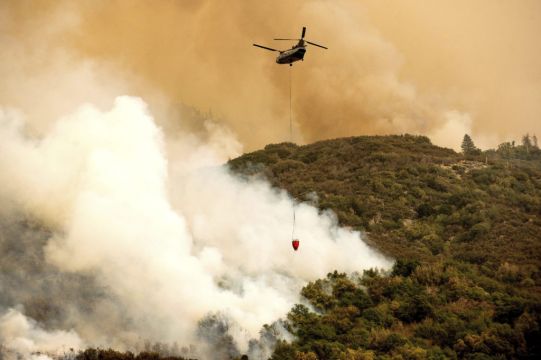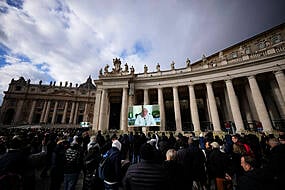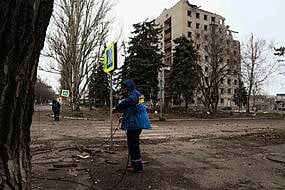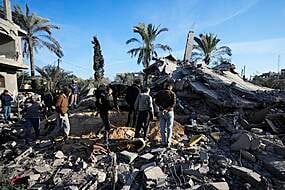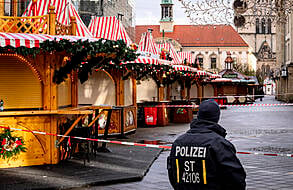Multiple forest fires are threatening groves of gigantic sequoias in California’s Sierra Nevada mountains that are home to some of the world’s largest trees.
Flames are likely to reach the famous Giant Forest in Sequoia National Park, where two fires have been burning since lightning ignited them on September 9, according to a briefing for fire crews.
It comes after a wildfire killed thousands of sequoias, some as tall as high-rises and thousands of years old, in the region last year.
Sequoia and Kings Canyon national parks Superintendent Clay Jordan stressed the importance of protecting the massive trees from high-intensity fire.

A national inter-agency fire management team took command of efforts to fight the 11-square-mile Paradise Fire and the 2.5-square-mile Colony Fire, which was closest to the grove.
Operations to burn away vegetation and other fuel that could feed the flames were planned for that area.
The fires forced the evacuation of the park this week, and additional areas in the town of Three Rivers outside the main entrance were ordered to be evacuated Thursday.
To the south, a fire on the Tule River Indian Reservation and in Giant Sequoia National Monument grew significantly overnight to more than 6 square miles and crews had no containment of it, a Sequoia National Forest statement said.
The Windy Fire, also started by lightning, has burned into part of the Peyrone Sequoia Grove in the national monument, and other groves were threatened.
“Due to inaccessible terrain, a preliminary assessment of the fire’s effects on giant sequoia trees within the grove will be difficult and may take days to complete,” the statement said.

The fire led the Tulare County Sheriff’s Office to warn the community of Johnsondale and Camp Whitsett, a Boy Scouts camp, to be ready to evacuate if necessary.
The wildfires are among the latest in a long summer of blazes that have scorched nearly 3,550 square miles in California, destroying hundreds of homes.
A 50-year history of using prescribed burns — fires set on purpose to remove other types of trees and vegetation — in the parks’ sequoia groves was expected to help the giant trees survive by lessening the impact if flames reach them.
Giant sequoias grow high on the western slope of the Sierra Nevada. They are adapted to fire, which can help them thrive by releasing seeds from their cones and creating clearings that allow young sequoias to grow.
But the extraordinary intensity of fires — fuelled by climate change — can overwhelm the trees, a scenario that happened last year when the Castle Fire killed many sequoias in the region.
Studies estimate that 7,500 to 10,600 large sequoias died in that fire, according to the National Park Service.
Crews had limited ground access to the Colony Fire and the extreme steepness of the terrain around the Paradise Fire prevented it completely, requiring extensive aerial water and flame-retardant drops on both fires.
